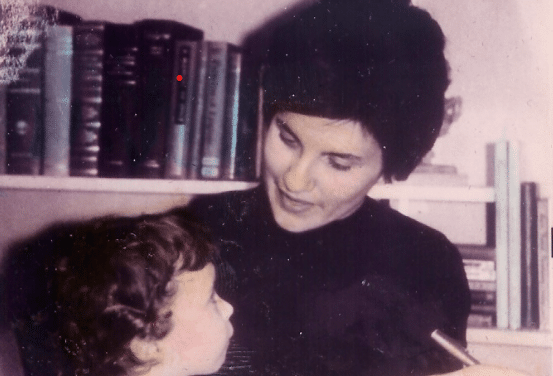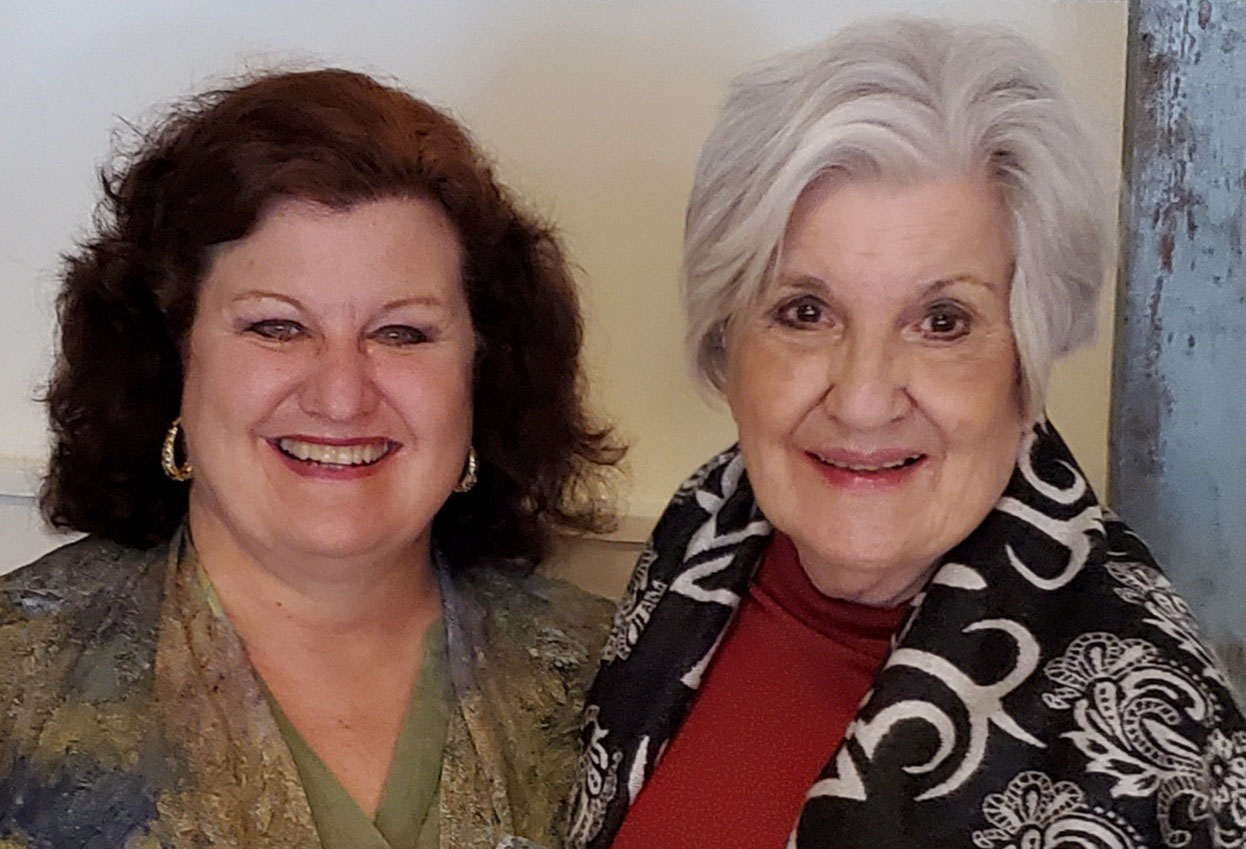Marilou Awiakta (’58) wears a pendant of a deer leaping inside the atomic symbol every time she makes an appearance in public. The deer signifies the traditional Cherokee story of Little Deer, who teaches hunters the law of respect. The atomic symbol represents the universality of that law as well as the poet’s connection to Oak Ridge, Tennessee. Awiakta’s name means “Eye of the Deer,” which represents looking at life with a sensitive, penetrating gaze.
Awiakta’s work centers around three pillars of her heritage: Cherokee, Appalachian, and the atomic era. Her poetry, stories, and essays have been in publication for decades, distinguished with many awards, and translated widely especially into French. Her books include Abiding Appalachia: Where Mountain and Atom Meet, Rising Fawn and the Fire Mystery, and Selu: Seeking the Corn Mother’s Wisdom.
Recently the University of Tennessee, Knoxville, had the privilege of acquiring her papers for the Hodges Library and in June distinguished Awiakta with an Accomplished Alumni Award. Joining Awiakta for the award ceremony were Parks Lanier, her longtime collaborator and a professor emeritus of English at Radford University in Virginia, and Alice-Catherine Carls, her translator into French and the Tom Elam Distinguished Professor of History at the University of Tennessee, Martin. Aleex Conner, a UTK graduate, her daughter, and her literary manager, worked closely with Awiakta and the UT staff to establish this archival collection at the library.
Awiakta’s work centers around three pillars of her heritage: Cherokee, Appalachian, and the atomic era. Her poetry, stories, and essays have been in publication for decades, distinguished with many awards, and translated widely especially into French. Her books include Abiding Appalachia: Where Mountain and Atom Meet, Rising Fawn and the Fire Mystery, and Selu: Seeking the Corn Mother’s Wisdom.
Recently the University of Tennessee, Knoxville, had the privilege of acquiring her papers for the Hodges Library and in June distinguished Awiakta with an Accomplished Alumni Award. Joining Awiakta for the award ceremony were Parks Lanier, her longtime collaborator and a professor emeritus of English at Radford University in Virginia, and Alice-Catherine Carls, her translator into French and the Tom Elam Distinguished Professor of History at the University of Tennessee, Martin. Aleex Conner, a UTK graduate, her daughter, and her literary manager, worked closely with Awiakta and the UT staff to establish this archival collection at the library.
“I am so touched with this award,” Awiakta said. “It makes me so very happy that that the university thinks I’m “a beacon shining bright” because we all know that the university has been “a beacon” for many, many decades. I had excellent teachers and training at UT, and when I set out to begin my work, there was not much information in textbooks about indigenous or Appalachian people. I wanted to bring these cultures blended within me to the forefront.”

The Cherokee law of respect plays a central role in Awiakta’s work, and is symbolized by the deer on her pendant.
“In the story of Awi Usdi, the spirit chief of the deer, Cherokee hunters were killing too many deer,” Awiakta recounted. “A council was held in which Awi Usdi said, ‘If the hunter kills, takes with respect, and shows gratitude to the deer, then I will bless the hunt. If not, I will track him to his home and cripple him so that he never can hunt again. And thus, the law of respect for nature is incorporated in the story, but it’s also the law of respect for life in general. If you take, then you must take with respect and give back. ”
“In the story of Awi Usdi, the spirit chief of the deer, Cherokee hunters were killing too many deer,” Awiakta recounted. “A council was held in which Awi Usdi said, ‘If the hunter kills, takes with respect, and shows gratitude to the deer, then I will bless the hunt. If not, I will track him to his home and cripple him so that he never can hunt again. And thus, the law of respect for nature is incorporated in the story, but it’s also the law of respect for life in general. If you take, then you must take with respect and give back. ”

Family also plays a pivotal role in Awiakta’s life and work, a value that comes both from the Cherokee and Appalachian sides of her heritage. She met her husband, Paul Thompson, at UT and their three children as well as several grandchildren attended the university and live in Knoxville. Her great uncles, Fred and Walter Bonham, were generous supporters of UT. Awiakta learned from her mother at five years old, just after Pearl Harbor, that “family is the basic survival unit.”
Steve Smith, dean of libraries at UT, joined in the awards ceremony to express his gratitude for Awiakta’s lifetime of involvement with the university. “This award may confer some small additional distinction upon you, but in truth you distinguish UT,” Smith said. “We are proud that you have entrusted us with the preservation of your papers, and all the treasures within them, for future scholars. The UT library has become a wellspring for scholarship, inspired by your message of restoring balance and harmony to the world.” Pictured are Awiakta and Aleex working in collaboration in 1964 and 2021.
Portrait photography provided by Brianna Paciorka/Knoxville News Sentinel.
Portrait photography provided by Brianna Paciorka/Knoxville News Sentinel.